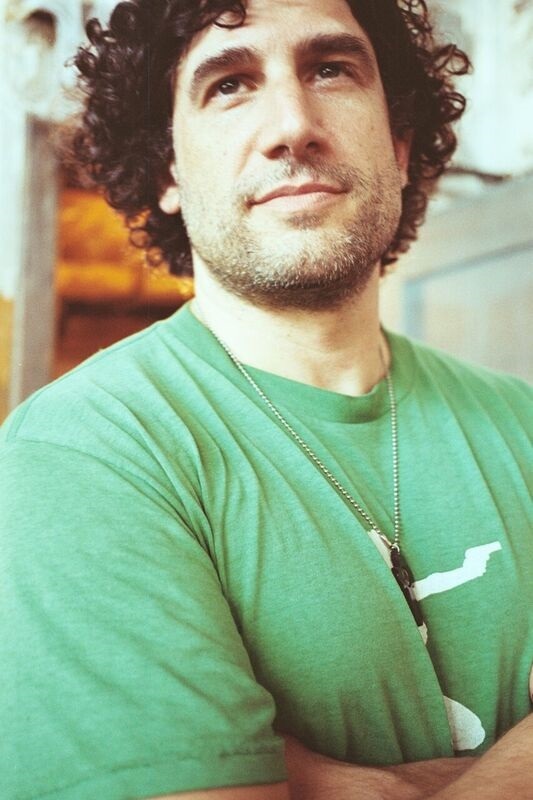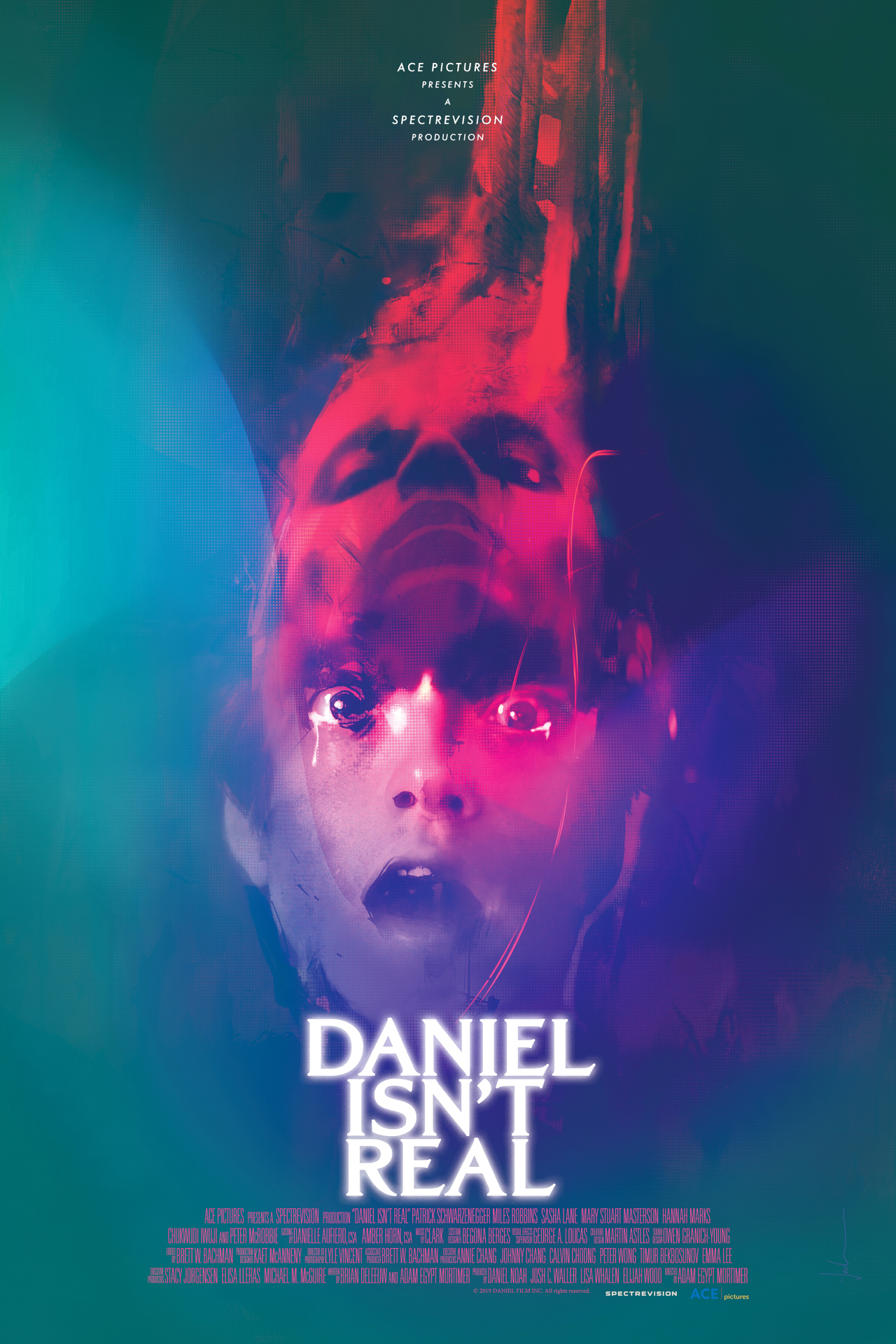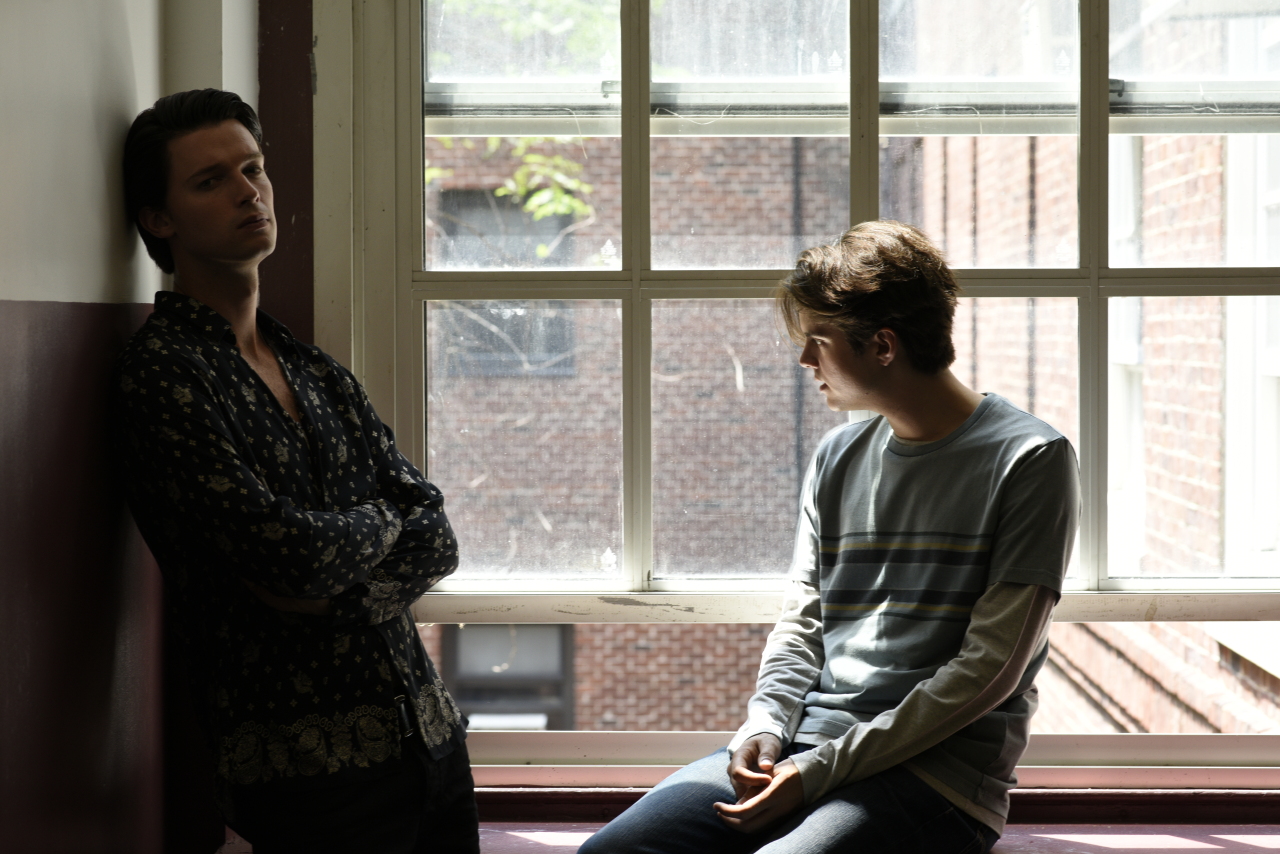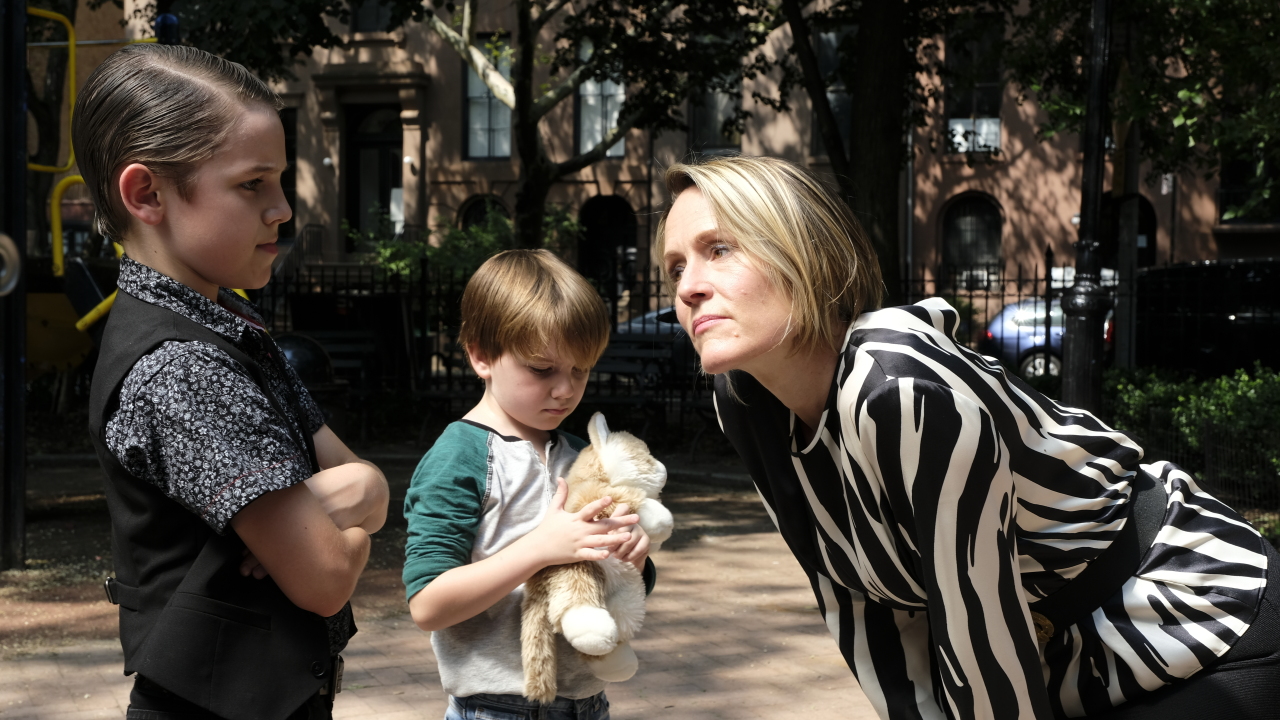Shotgun blasts rip through the tranquil scene of a coffeehouse to open “Daniel Isn’t Real,” a psychological horror film that recently debuted at the genre-focused Bucheon International Fantastic Film Festival. The portrayal is horrific in its intensity and brevity, cutting away quickly and returning moments later with police tape up and haphazard sheets unable to contain the crimson carnage draining down the floor.
From the other side of the tape, an 8-year-old Luke who has just run outside to escape his traumatic home life looks on, and is soon comforted and led away by another boy, Daniel, to go to the playground.
However, Daniel, as the title makes clear, is not real.
“Daniel Isn’t Real” was one of 10 films in the international Bucheon Choice competition at BIFAN, which ran June 27 to July 7 just west of Seoul in Gyeonggi Province. After its Korean premiere on June 29, director Adam Egypt Mortimer -- who would go on to win the Best Director Choice prize on Friday -- sat down with The Korea Herald.
 |
Adam Egypt Mortimer, winner of the Bucheon Choice Director award at the Bucheon International Fantastic Film Festival (BIFAN) |
“I want to make a movie that’s visual and exciting,” Mortimer said on the 96-minute film about main character Luke and imaginary friend Daniel. “And here’s these little kids and their imaginations coming to life.
“As they get older it becomes less about imagination and more about facing the darkness of reality.”
For all their imaginative play, Daniel turns out to be a tragically bad influence on the real child, and is locked away out of his life until a crucial moment in Luke’s first year at university.
“The premise of this movie is that at 19 years old he (Luke) lets this imaginary force back into his life and that undoes everything,” Mortimer set up. What or who Daniel is, though, may be more than a figment of imagination.
 |
Poster for “Daniel Isn’t Real” (BIFAN) |
The exploration of Daniel starts from the mundane and gradually expands into various possibilities of the incredible or supernatural, simultaneously as Luke’s world and sanity seem to be ripping apart. Is Daniel actually something explainable, perhaps an allegory for the mental breakdown of a young man who does not yet know who he is? Maybe. Whatever Daniel is, it is something that connects to us all.
“We all have a black hole inside of us, the whole human race has a black hole inside of us. Is that mental illness? Is that a result of our trauma? Is it actually a f------ demon?” the excited director posed.
When Mortimer met writer Brian DeLeeuw more than seven years ago and read his novel on which the movie was based, “In This Way I was Saved,” all he could think about was getting a movie made. “Originally, when we wrote it, it was the story of someone who thinks he’s possessed and then it turns out he’s crazy,” the director said, commenting that at first, “I felt like it was a very nihilistic story I was interested in telling.”
The story’s direction changed many times over, and after the 2016 US presidential election he no longer felt the general public needed reminded of the stark negativity surrounding them. “It became more about how do we acknowledge that we live in this dark nihilistic place and still maintain empathy?”
 |
Miles Robbins (right) and Patrick Schwarzenegger star in “Daniel Isn’t Real.” (BIFAN) |
What started as an aspiring filmmaker’s goal to get something on the big screen became personal. “As we started processing the story, it became to me more about -- when I was the same age as Luke, my best friend in college had this complete schizophrenic breakdown,” Mortimer confided. “Looking back on that years later, I see that being a hugely traumatic moment in my life.”
The world around Luke in “Daniel Isn’t Real” is deeply populated in characters with their own problems, particularly classmates trying to discover just who they are. Reflecting on the experience with his best friend, Mortimer commented that at 19 when everyone is seeking strange experiences, “It’s impossible to tell who among your peers is really suffering and really mentally ill.”
“I think that mental illness, demons, fate, tragedy, family, trauma -- all of these things become sort of equated in what we’re seeing in the movie,” he said, before offering a glimmer of hope. “If anything in this experience feels familiar to you, then I feel like you’re going to be more attracted to and elated by seeing it unfold than you are to be crushed by the way that it resolves.”
 |
A scene from “Daniel Isn’t Real” (BIFAN) |
As he thinks to his years ahead in filmmaking, Mortimer said he is content staying around the $5 million budget he had for “Daniel Isn’t Real,” but hopes to turn around future projects more quickly. “I’ll probably keep coming back to trying to make something exciting and cool and beautiful out of a bleak point of view,” he said. “Maybe that’s just something that’s inescapable for me.”
Just as bleak, perhaps, is his outlook on the film industry, as he worries that recent trends in big-budget blockbusters and episodic content will squeeze out two-hour self-contained films.
“I think that every movie is going to have to spray water and vibrate your seat,” the director joked. “It’s a bummer.”
By Kevin Lee Selzer (
klselzer@heraldcorp.com)











